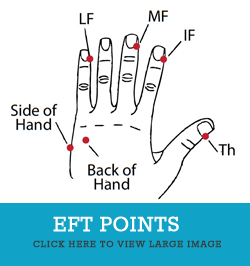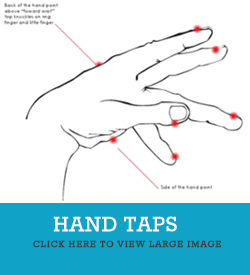Practice a Complete Mental-and-Emotional
Fitness System
All coaches agree that learning to manage your mind and emotions is critical to an athlete’s success. Players need to be mentally tough so they can handle the emotional ups and downs of sports performance. The problem is: until now, nobody has taught anybody how to do this.
The Incomplete Mental-game System
Athletes often tell me that building a positive mental-game approach would be helpful, but they’ve learned from experience that just trying to stay positive and put bad performances out of their mind doesn’t work very well. Although they may not even know what they’re asking for, they seem to want to know how to get started with practical, concrete techniques they can count on to be consistently mentally tough. Giving advice without teaching how to put the advice into practice doesn’t go far enough.
A Better Mental-game System, yet incomplete
Starting in the 1970s, sports psychologists highlighted the significance of the mental part of sports. They incorporated cognitive (thinking) methods into the model, noting that thoughts and self-talk matter and that visualizing and mental practice enhance physical performance. Sport psychology has some great methods, but it remains a field that still hasn’t penetrated the sports mainstream. The problem is that as soon as you say “sport psychology,” athletes think you are going to analyze what is wrong with them and why. They may believe that seeing a sports psychologist means they are weak.
The Total Mental-game System
The latest brain science teaches us that thoughts don’t just stay in the brain; they also travel into your body. Today, a handful of sports performance practitioners have added practical, fast, effective methods that address the mind and body as an interactive system.
Using these methods, good advice and sports psychology’s cognitive methods have practical value. I believe that Warburton’s Winning System, which I developed over the past 40 years during my work in the fields of psychology, motivation, achievement, personal change and athletics, is the latest and most complete mental and emotional training system available today.
Do any of these examples of advice sound familiar?
A Quick Self-Check
- “Keep a positive mental attitude.”
- “Develop your mental approach to the game.”
- “Get mentally tough.”
- “Learn to manage your mental game.”
- “Keep your composure.”
- “Keep your emotions off the field. “
- “Stay positive.”
- “Don’t be negative, just put bad performances out of your mind.”
If you’ve been given this advice but it hasn’t worked, don’t blame yourself.
Advice giving is the only mental-game method that has been used for generations, and it is incomplete.
Warburton’s whole-person training systems fills in the gaps!
You’re about to learn techniques that can change your game forever.
Call Greg for fee quotes and explanations of his services at (541) 971-9810






